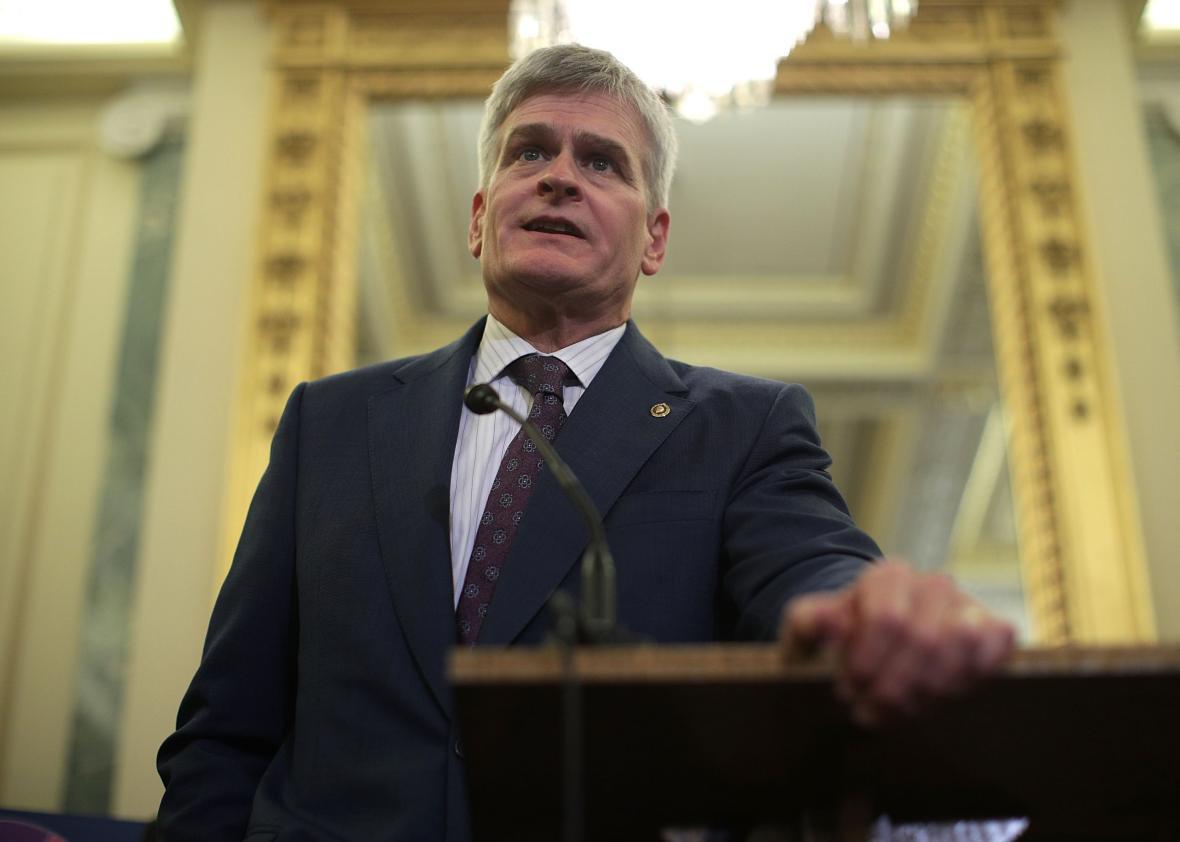Louisiana Sen. Bill Cassidy says that Thursday “may have been my best day as a senator.” If you’re not a fan of repealing and replacing Obamacare, then that’s bad news.
Cassidy, a co-author of the GOP’s last-ditch effort to fulfill its health care promise ahead of its Sept. 30 parliamentary deadline, told reporters Friday morning that “we’re probably at 48-49 [votes] and talking to two or three more,” according to the Hill. “I am pretty confident we’ll get there on the Republican side,” he added.
One lesson I’ve learned covering this never-ending repeal-and-replace effort is that Bill Cassidy does not always know as much as he thinks he does. Another is that a whole lot of Republican health care bills can get 48 votes, but none so far has been able to get 50. There are your two caveats. And yet, this sudden push for Graham-Cassidy—something that did not exist within the Senate Republican caucus even a few days ago—appears to be the real thing.
They have two weeks.
Senate leaders, who had been keeping their hands clean of this latest effort, are now all in. (It’s now technically Graham-Cassidy-Heller-Johnson, but we’ll stick with the short version, because give me a break.) Majority Whip John Cornyn is whipping the votes, and Majority Leader Mitch McConnell has asked the Congressional Budget Office to quickly produce a score. The Senate GOP’s Thursday lunch was the pep rally the bill needed, the apex of the best day of Cassidy’s senatorial tenure.
Though the votes aren’t there yet, and the Senate would still have to move fast by Senate standards to muscle this through, the renewed energy has caught Democrats’ attention. Staffers tell me they’re now taking the threat seriously.
“It is starting to feel like this has potential to get to the floor again,” one Senate Democratic aide says. “It’s frightening.”
My colleague Jordan Weissmann has written about how the Graham-Cassidy bill is not the moderate compromise its backers make it out to be. The bill would essentially collapse Obamacare’s market subsidies and Medicaid expansion by replacing them with block grants allotted to each state to design their own health systems, with few strings attached. Those grants would be determined by a complex formula that, relative to current law, punishes large blue states or those that expanded Medicaid while rewarding red states that didn’t. Like previous GOP bills, Graham-Cassidy would also set slow-growing per-capita caps on traditional Medicaid, and allow states to waive out of core Obamacare insurance regulations. It would defund Planned Parenthood for one year.
We have a decent sense of which senators Cassidy might not have. Maine Sen. Susan Collins and Alaska Sen. Lisa Murkowski were the staunchest opponents of each version of repeal and/or replace that came up for a vote in July. They will be difficult to flip. Sen. John McCain, the third no vote on the “skinny repeal” bill that appeared to seal the fate of Obamacare repeal in July, has said that any effort to replace Obamacare must be done through “regular order,” and Graham-Cassidy sure as hell wasn’t. On the other hand, McCain is best friends with South Carolina Sen. Lindsey Graham, a co-author of the bill, so maybe that’s good enough for him. The key obstacle could be Kentucky Sen. Rand Paul, who told me this week that Graham-Cassidy had “zero” chance of passing the Senate. Paul tweeted Friday morning that he still wouldn’t support it, for strange Rand Paul reasons that don’t make much sense, and Paul has been arguing with Cassidy about it since. If you don’t have Paul, Murkowski, or Collins, and you are in the process of persuading McCain to support his dear friend Graham, then there’s your whip count of 48 or 49.
One piece of good news for Senate Republicans is that they will have until 11:59:59 on Sept. 30 to wrangle the final votes, get a CBO score, and work through other parliamentary concerns, and pass this. Though the Senate will no longer be able to pass repeal-and-replace with a simple, 50-vote majority after that point, the House does not need to meet the same deadline. The House can still pass the Senate bill whenever it chooses after Sept. 30—it just can’t make any changes. If the House did amend the bill and pass it, then it would have to surmount a 60-vote Senate filibuster.
I know you’re sick of this. I’m sick of it. Democrats are sick of it. Republicans are sick of it. But for the next two weeks, we’ve got a live one.
